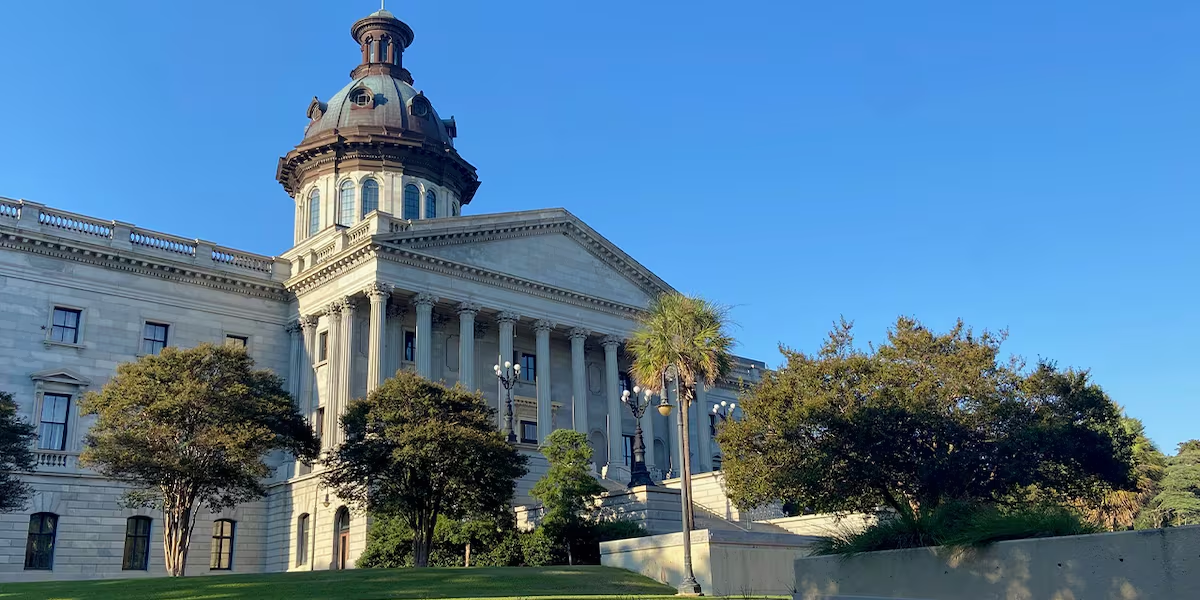South Carolina legislators are currently not receiving their in-district compensation, following a legal challenge that has put newly approved pay increases on hold. What began as a routine budget adjustment has evolved into a constitutional standoff with wide ramifications for state lawmakers.
What Happened
- Earlier this year, the state budget passed a line increasing legislators’ in-district compensation from $1,000 per month to $2,500, effective July 1. The change would have affected all 46 state senators and 124 House members.
- But State Senator Wes Climer filed a lawsuit arguing that the constitutional procedure for increasing legislative pay was violated. Specifically, Climer contends that under the state constitution, any raise to legislative pay must wait until after the next election, rather than taking effect immediately.
- A few days before the raise was set to begin, the South Carolina Supreme Court issued an order halting both the new $2,500 pay and even the original $1,000 monthly payments tied to the in-district compensation line. Because of that ruling, legislators have not been paid since July under that provision.
Consequences & Responses
- Legislators are now facing several months without that portion of their compensation. Some are paying out-of-pocket for expenses tied to their legislative duties that would normally be covered by this in-district pay.
- Reaction among lawmakers is mixed. Some argue that the freeze is a necessary correction of constitutional overreach. Others see it as an unintended burden, especially for those who rely on the modest compensation to cover travel, staff, or office costs in their home districts.
- Senator Climer, the plaintiff in the case, defends his suit as a defense of constitutional norms—that lawmakers should not set their own pay without voter input via elections. Others worry about the chilling effect this may have on people considering running for legislature.
Legal & Constitutional Issues
- The crux of the lawsuit is the constitutional requirement: South Carolina law mandates that pay increases for legislators cannot take effect until after the next general election. The timing of the raise in the budget (effective immediately) is being challenged as inconsistent with that rule.
- The state Supreme Court’s interim order prohibits not only the pay raise but also the older, pre-raise compensation under that same line item. Until the court fully decides, neither payment is allowed under that provision.
- Arguments are expected in court later this year, with the possibility that legislators could be owed back pay or that the raise might ultimately be declared invalid.
Why It Matters
- Representation & Accessibility: The dispute has raised questions about whether low compensation—or unpredictable compensation—discourages everyday citizens from seeking public office. Those without independent means may struggle if reimbursements or compensation are suspended.
- Separation of Powers & Checks: It sets a precedent about how far the legislature can go in setting its own pay without judicial or voter oversight.
- Budget & Governance: The court’s ruling shows that even seemingly small line items in a budget can have outsized institutional consequences if they conflict with constitutional provisions.
What to Watch Next
- The timing of the full Supreme Court hearing and decision. Whether the raise will be reinstated, modified, or struck down.
- What happens with compensation that’s been withheld—whether lawmakers will get back pay or accrue debt for that period.
- Potential changes in how future budgets handle compensation for public officials, especially legislators. There may be new legislative or constitutional reforms to clarify how raises are processed.
- Broader political fallout—public opinion, especially among taxpayers, about whether legislative pay is justified, particularly during periods of frozen or suspended pay.
Conclusion
South Carolina’s legislators find themselves in an unusual bind: a legislature that passed its own pay raise is now unable to receive it due to its own lawsuit and a court ruling. The situation underscores how constitutional safeguards can override legislative action—even when that action has legislative approval. Whether the raise was legal or not, the impact is clear: lawmaking comes with real costs, and delay in pay has real consequences for those serving.















Leave a Reply